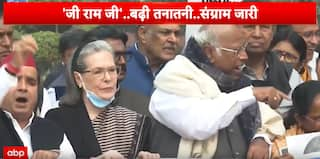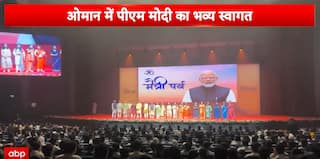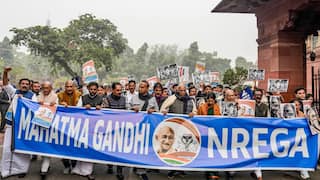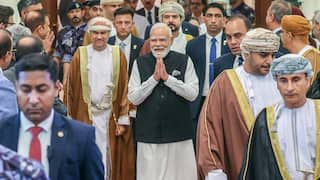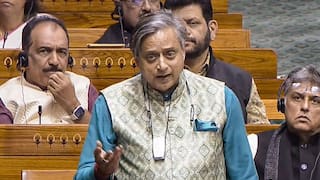China Backs EAM Jaishankar's Remarks On Asian Century, Says Talks To Resolve Ladakh Standoff 'Effective'
India has been consistently maintaining that peace and tranquillity along the Line of Actual Control (LAC) were key for the overall development of bilateral ties.

New Delhi: China on Friday concurred with External Affairs Minister S Jaishankar's observation that an Asian Century cannot happen if India and China don't join hands and emphasised that the two neighbouring countries have "far more common interests than differences." Responding to a series of questions after delivering a lecture on 'India's Vision of the Indo-Pacific' at the prestigious Chulalongkorn University in Bangkok on Thursday, Jaishankar said the relationship between India and China was going through an "extremely difficult phase" after what Beijing had done at the border and emphasised that the Asian Century would not happen if the two neighbours could not join hands.
The troops of China and India are engaged in a prolonged standoff in eastern Ladakh. The two sides have so far held 16 rounds of Corps Commander Level talks to resolve the standoff which erupted on May 5, 2020, following a violent clash in the Pangong Lake areas.
India has been consistently maintaining that peace and tranquillity along the Line of Actual Control (LAC) were key for the overall development of bilateral ties.
Asked for his reaction to Jaishankar's comments, Chinese Foreign Ministry spokesman Wang Wenbin told a media briefing here that "as a Chinese leader put it, "Unless China and India are developed, there will be no Asian Century. No genuine Asia-Pacific Century or Asian Century can come until China, India and other neighbouring countries are developed." "China and India are two ancient civilisations, two major emerging economies and two neighbouring countries, we have far more common interests than differences. Both sides have the wisdom and capability to help each other succeed instead of undercutting each other," he said.
To a question on whether China will hold talks with India on the disengagement at the remaining friction points in eastern Ladakh, Wang said, "China and India maintain smooth communication over the boundary question. And our dialogue is effective." He expressed the hope that India will work with China to act upon the important common understandings between the leaders of the two countries, i.e. "China and India are not each other's threats, but cooperation partners and development opportunities, bring China-India relations back to the track of steady and sound development at an early date and safeguard the common interests of China, India and our fellow developing countries," Wang said.
Commenting on Jaishankar’s Asian Century remarks, Qian Feng, director of the research department at the National Strategy Institute at Tsinghua University here, told the state-run Global Times newspaper that the expression "Asian Century" has served as a driving force for China and India to normalise and strengthen their relations since 1988, and India's External Affairs Minister's use of the term in stressing the need for a friendly bilateral relationship is worth praising.
The expression "Asian Century" was first used by former Chinese leader Deng Xiaoping. In 1988, when he met with then Indian prime minister Rajiv Gandhi, he pointed out that unless the two countries [China and India] are developed, there will be no Asian Century, Qian said.
Meanwhile, on Jaishankar's remarks on reservations to the Quad alliance, apparently from China, the foreign ministry spokesman reiterated China's objection to the four-nation bloc comprising India, the US, Japan and Australia.
"Our position on Quad is consistent and clear. I would like to reiterate that in today’s world, building exclusive groups is against the trend of the times and will not get any support or get anywhere," he said.
In an apparent reference to China's opposition to Quad, Jaishankar, without naming any country, had said that "if there are reservations in any quarter, these stem from a desire to exercise a veto on the choices of others. And possibly a unilateralist opposition to a collective and cooperative endeavours".
The Quad or Quadrilateral Security Dialogue was set up in 2017 amidst China's aggressive behaviour in the strategic Indo-Pacific region.
(This report has been published as part of the auto-generated syndicate wire feed. Apart from the headline, no editing has been done in the copy by ABP Live.)











